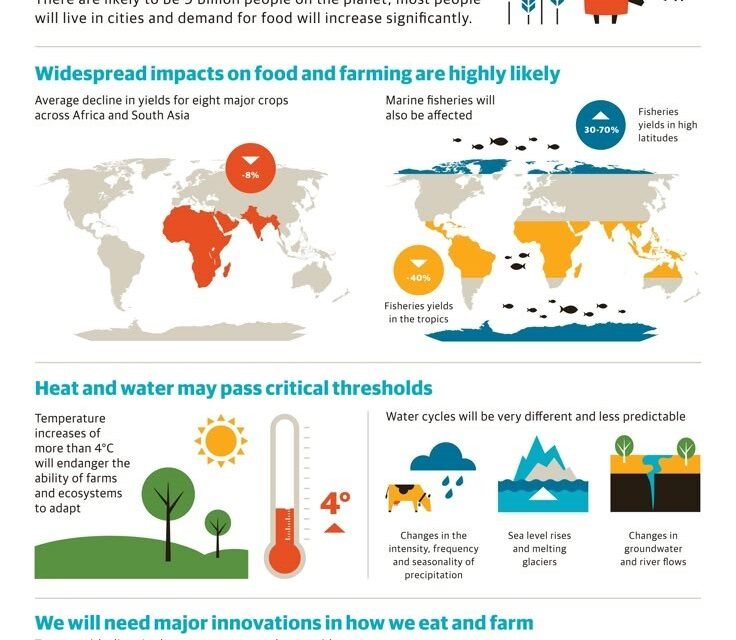The future of food production in the face of climate change is increasingly centered on sustainable agriculture practices. These approaches aim to enhance resilience, reduce greenhouse gas emissions, and ensure food security.
Climate-Smart Agriculture (CSA)
CSA integrates practices and technologies that simultaneously boost productivity, enhance resilience, and reduce greenhouse gas emissions. It focuses on managing landscapes—cropland, livestock, forests, and fisheries—to address the interconnected challenges of food security and climate change.
Regenerative Farming and New Entrants
A new generation of farmers is embracing regenerative farming, which emphasizes improving soil health and reducing artificial inputs. This movement is attracting younger, climate-conscious individuals to agriculture, traditionally an aging industry. However, new entrants face significant financial challenges due to high land costs and the industry’s demanding nature. Progressive landlords and innovative tenancy agreements are offering new opportunities, suggesting a promising future for sustainable agriculture.
Agroecology vs. Industrial Agriculture
Debates are intensifying over how to ensure food security, with one side supporting increased use of fertilizers, while the other advocates for agroecology. Agroecology combines traditional knowledge with modern science to restore biodiversity and build resilient food systems. Supporters emphasize the use of bio-fertilizers, such as bokashi, made from organic materials, to enhance soil health. Meanwhile, companies are working on soil health technologies to reduce reliance on chemical inputs.
Climate-Resilient Crop Development
In India, rising temperatures and erratic rainfall are challenging rice production, prompting agricultural research organizations to develop climate-resilient rice seeds. Farmers are experimenting with these new seeds, which promise better yields, reduced water dependency, and increased disease resistance. Successful implementation could safeguard India’s agriculture amid growing global food insecurity.
Corporate Sustainability Initiatives
Companies like General Mills are advancing regenerative agriculture to address climate change. They emphasize the importance of collective action among companies, governments, and civil society to achieve net-zero emissions. This approach calls for a shift from focusing on individual company goals to collaborative efforts that contribute to broader systems change.
Sustainable agriculture is pivotal in shaping the future of food production amidst climate change. By integrating climate-smart practices, fostering new entrants into regenerative farming, balancing agroecology with industrial agriculture, developing climate-resilient crops, and promoting corporate sustainability initiatives, the agriculture sector can enhance resilience, reduce emissions, and ensure food security.









